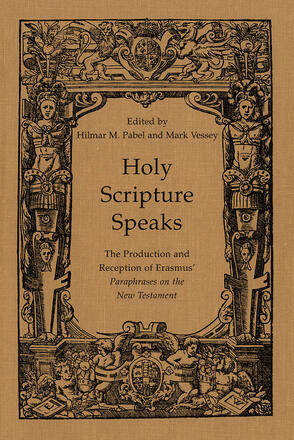
Holy Scripture Speaks
The Production and Reception of Erasmus' Paraphrases on the New Testament
Description
Erasmus' Paraphrases on the New Testament provide a startling example of the adaptation of the Bible to the religious and rhetorical ideals of Renaissance humanism. Yet very little is known about the production and reception of the Paraphrases, which comprise nine volumes of the Collected Works of Erasmus in English. In this collection of twelve contributed essays, Hilmar Pabel and Mark Vessey aim to address this gap in Erasmus studies. The papers reflect recent critical scholarship in three main areas: Erasmus' promotion of the ideals of Renaissance humanism; his work as an editor, translator, and interpreter of the New Testament; and the impact of his published writings on the culture of early modern Europe.
Holy Scripture Speaks represents the most concerted collective study of Erasmus' Paraphrases on the New Testament since the completion of the first English translation by scholars during the reign of Edward VI (1548/9). It reveals the rich complexity of the literary, theological, and cultural dimensions of the Paraphrases, and indicates future directions that research in this area should take.